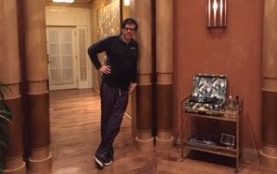“Conversations with Alumni” – Keith Kefgen ‘84
Jaein Kim ’21 had the chance to interview Keith Kefgen ‘84, Managing Director & CEO of Aethos Consulting Group.
How did you discover your interest in hospitality executive research?
It was relatively happen-stance. I was in operations at The Waldorf-Astoria hotel in NYC and Hilton wanted me to relocate. I did not want to leave NYC, so I decided to look at career options outside of Hilton.
One of my bosses at The Waldorf suggested that I talk to a friend of his in the executive search business. I met with this executive search practitioner and he offered me a job. Getting in to consulting did several things for me. One, I could set my own hours and spend more time with my young family. Two, I thought consulting would offer more financial upside and finally, it would give me the opportunity to open my own business someday.
You began your career in operations at the Waldorf Astoria. How has this background set you up for success in your subsequent roles?
Coming out of The Hotel School, I thought I was ready to be a hotel executive. What I found out that is that I didn’t know as much about the industry as I thought I did. My family was in a restaurant business in Detroit, but I had little exposure to hotels. So, those years gave me a true understanding of what it’s like to work in a large and famous hotel that has a huge reputation to uphold, history, and so forth. I learned the business of hotels from the ground up. I wouldn’t have the same appreciation for the industry if I hadn’t done that for at least a few years. I don’t think it was ever a goal of mine to become a GM, but I think it was a great foundation to set me up for success.
Tell us about how HVS Executive Search came to be? What led to its creation and what impact did it create?
My Cornell classmate Mike Cahill called me about conducting a search. Mike was at HVS and on the board of Microtel, a company that was going public at the time. He told me that they were looking for a head of franchise development and that they wanted me to come pitch for the business. After the assignment, Mike approached me privately and told me that he and Steve Rushmore, the founder of HVS had been thinking about expanding beyond their appraisal roots as a consultancy. He asked if I would be interested in starting an executive search division at HVS. We talked for a few months and put a business plan together. I founded HVS Executive Search in 1992 with Mike and Steve as my partners. A lot of people wondered whether it made sense, but we built a business plan that became the model for how HVS added other divisions.
You were with HVS for quite some time, nearly 20 years. When did you know it was time to make the career move and join AETHOS?
It was the fact that Steve was closing in on retirement and several of my executive search partners wanted to strike out on their own. Steve was really the glue that kept me at HVS, so I decided to join my former colleagues at AETHOS.
You’re a member of the Forbes HR Leadership Council. I understand that the council is composed of executives spanning a diverse range of industries. How have insights from these leaders assisted you?
What I like about the diversity of the group is that I get different perspectives. Rather than talking to hotel, restaurant, and casino people all the time, it gives me the opportunity to hear other people’s thoughts on a particular matter that spans beyond our industry.
What do you wish you knew as a student? Whether it’s opportunities or resources that you wish you would’ve known earlier or general life/career advice.
I encourage students to read my book, The Loneliness of Leadership, which is organized around various life lessons that I’ve learned. In addition, our movie, The Power of Advice, shows some of the findings and thoughts that I and my partners have had over the years.
One thing that comes to mind is the concept of “asking for help”. It is important for people to recognize what you do know and what you don’t. Most people are afraid to ask for help because they think it is a sign of weakness. The truth is, it takes a mature, self-aware person to ask for help.
Secondly, I think students need to demonstrate flexibility and adaptability. Most people think there’s only one way to do something right, but I don’t see it that way. I think lessons about understanding how to become more adaptable and thoughtful are very helpful.
Third, there is the issue of empathy and servant leadership. I think servant leadership is the most effective leadership style. Autocratic leadership may work for a period, but it never seems to last. It seems like the people with more lasting leadership capabilities have this servant leadership style and empathy towards the people they are leading.
Lastly, I tell all young people to never give up your dreams. It may be a tough road and you may have to ask for help and adapt, but if you have a passion for something and want it badly enough, see it through. I see too many people who have regrets about their life choices. I don’t think about it much and don’t feel as though I’ve missed out on much because I’ve been so passionate about the direction, I’ve chosen.
* * *
The Cornell Hotel Society Executive Board thanks the Cornell Hotel Society – Collegiate Chapter for initiating and conducting the “Conversations with Alumni” project.



